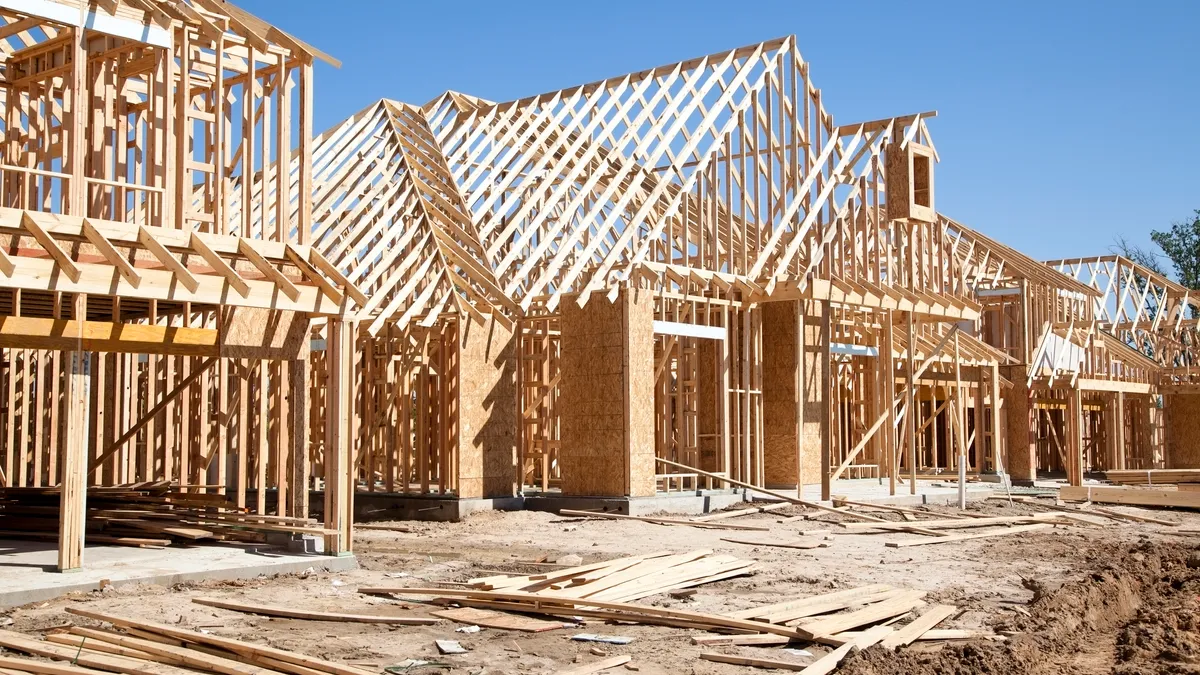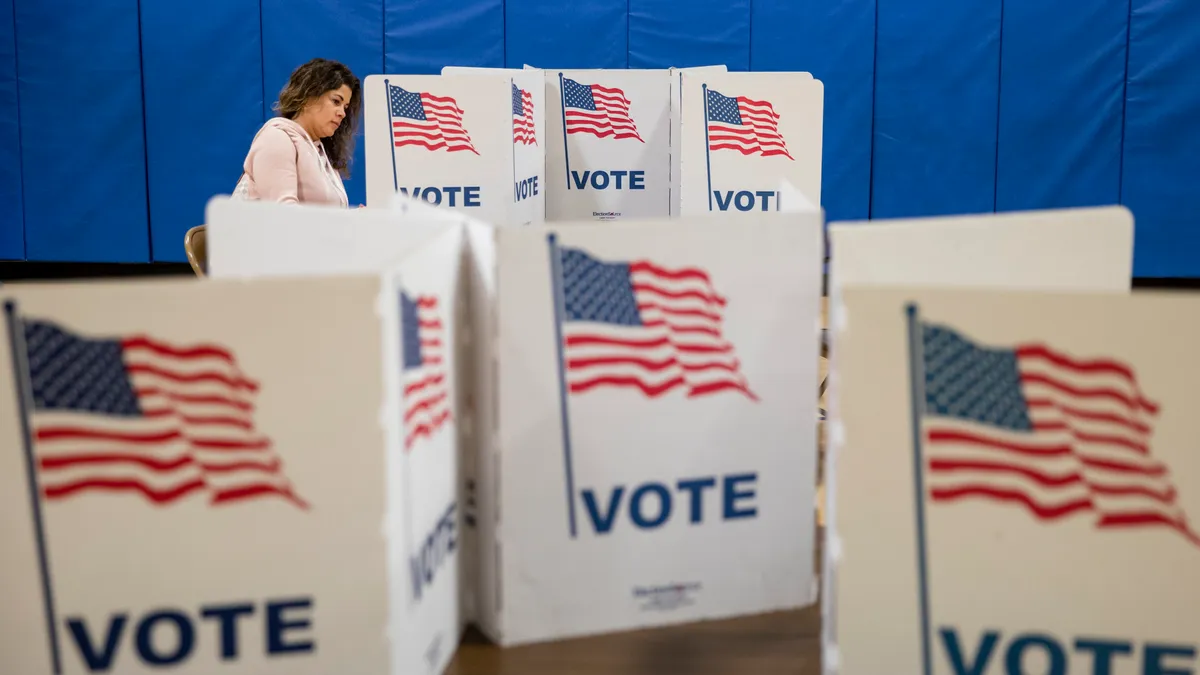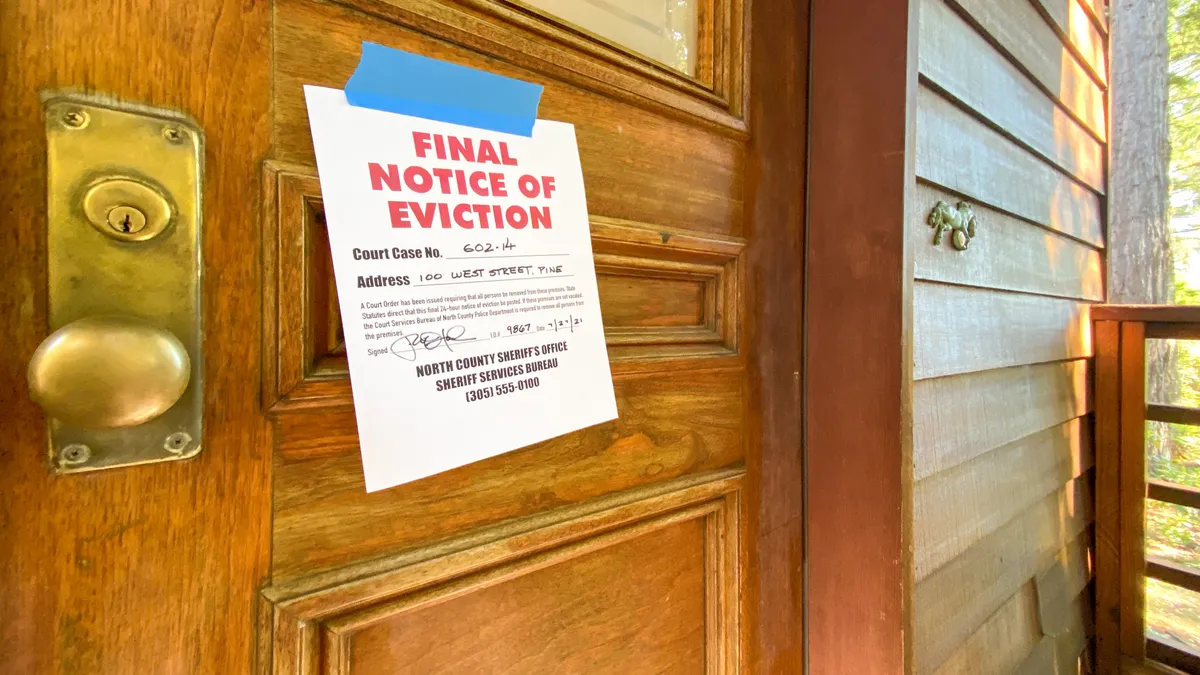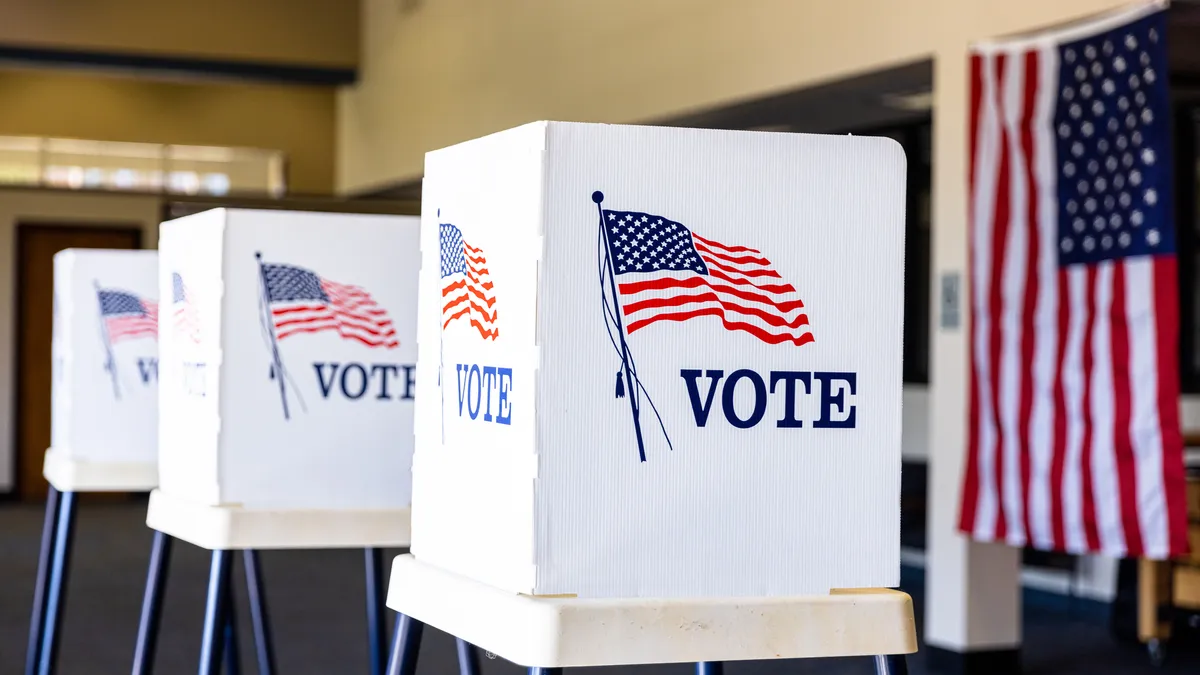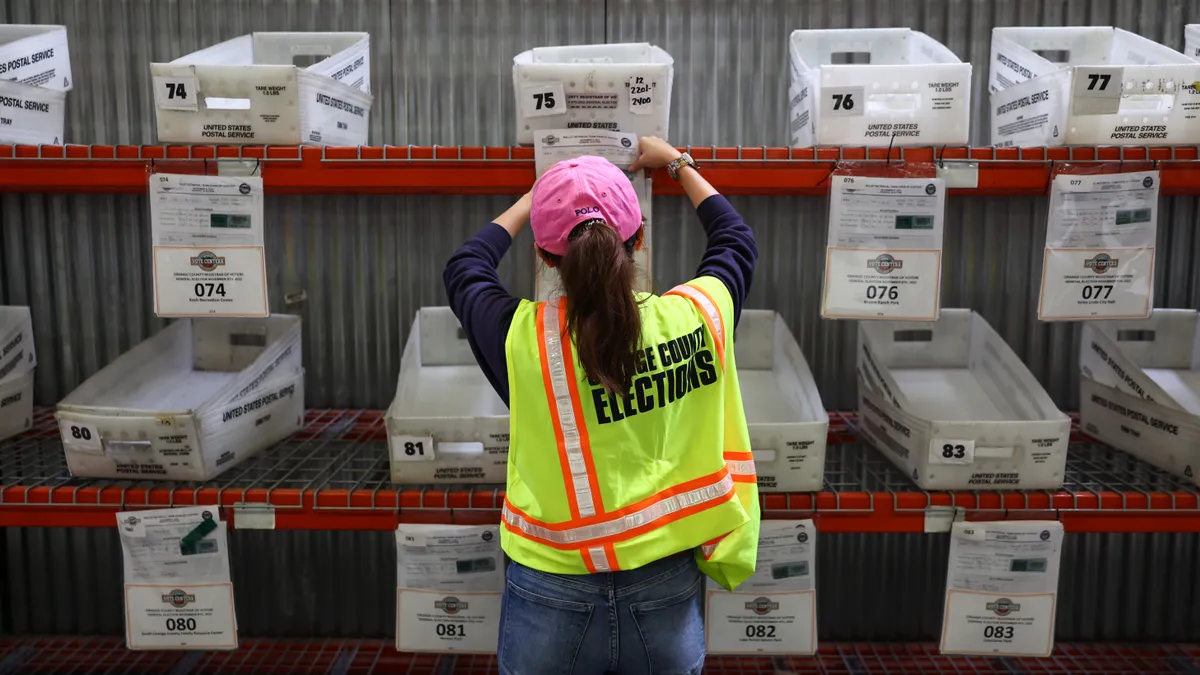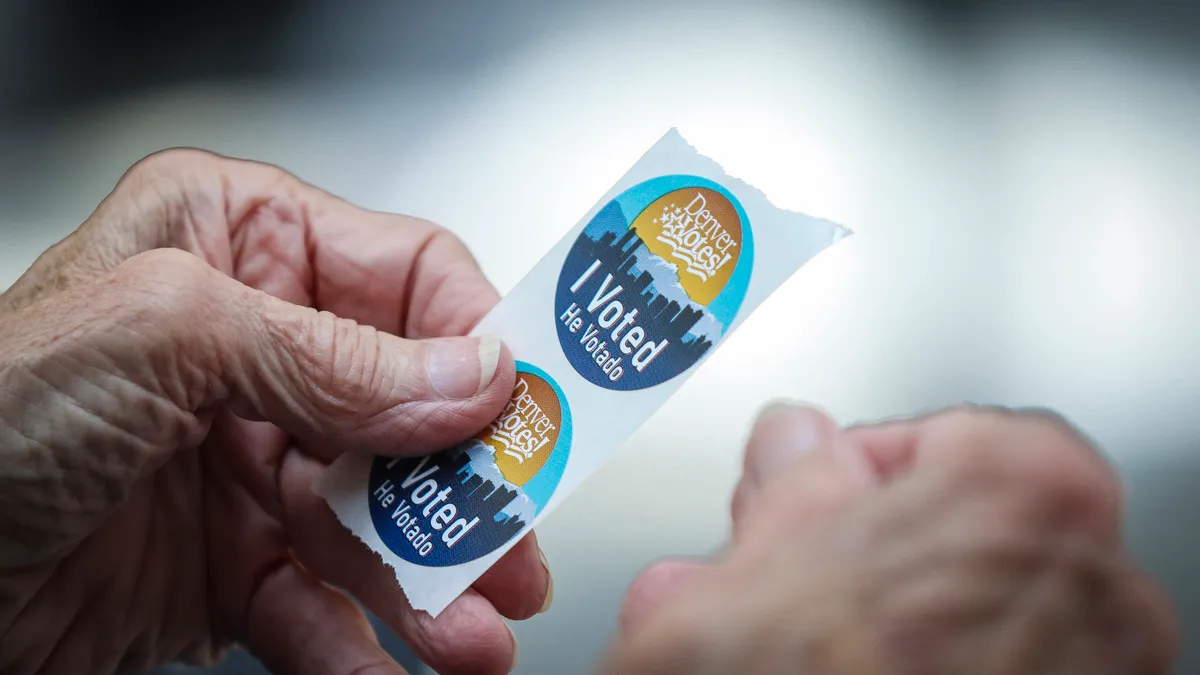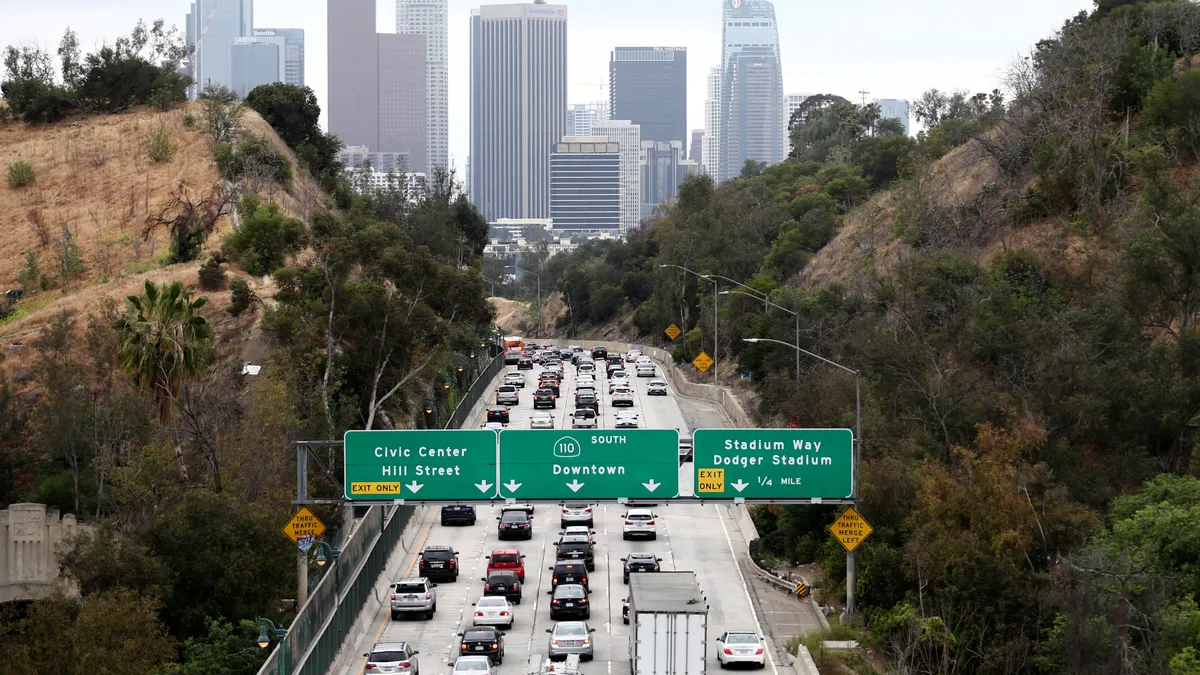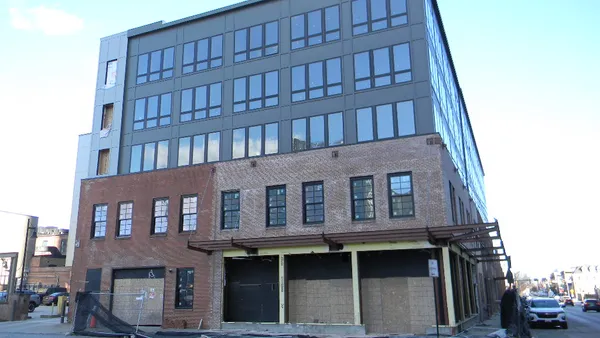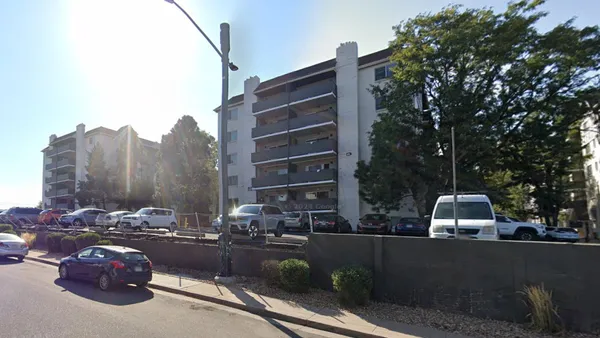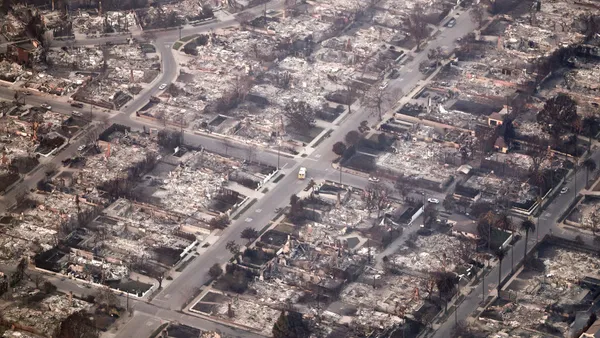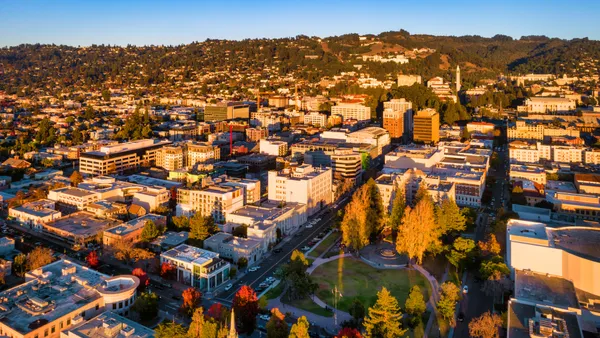This is the third in a series on local and state ballot initiatives in 2022. See previous roundups of local and state transportation-related measures.
Voters in many cities will have the opportunity this November to weigh in on measures that would address the rising cost of housing that has made buying or renting unaffordable for many residents.
Dozens of small, mid-sized and large cities throughout the U.S. have introduced ballot measures with schemes that would pay for affordable housing and homelessness services through new tax revenues. They include a statewide measure, bond measures, a so-called mansion tax (a real estate transfer tax) and property tax levies.
This election cycle, about 80 local jurisdictions have placed some housing measure on the ballot, whether that’s related to funding new housing, making it easier to build new housing in their communities, or helping those who can’t afford it, said Ben Kelly, a Denver-based public affairs consultant focused on housing development among other issues. He has been tracking such measures since last year’s election cycle.
Cities with housing on the ballot are not just isolated to one geographic region or a handful of states where there are low barriers to putting measures on the ballot.
“This is happening in jurisdictions in all states and sizes trying to address some segment of their affordable housing challenges,” Kelly said. “The pressures are reaching a level that local jurisdictions are really actively looking for local solutions.”
Cities received federal funding to address some of their housing-related issues during the COVID-19 pandemic through the American Rescue Plan Act and the Coronavirus Aid, Relief and Economic Security Act. However, the windfall for housing proposed in the Biden administration's original Build Back Better plan, which died in the Senate last year, was not included in the Inflation Reduction Act spending package that passed over the summer.
As the housing crisis continues to worsen, the federal government’s “lack of action on the issue” has been a primary factor behind why numerous cities are taking local action to address the issue, said Yonah Freemark, senior research associate at the Urban Institute.
“I think that is serving as a motivator for local governments to address a problem they see in front of them,” Freemark said.
Here are some key affordable housing-related funding measures up for a vote at the city, county and state levels this November.
Bond measures
- Berkeley, California’s $650 million bond measure would set aside $200 million to create 1,500 affordable units for low-income residents and people experiencing homelessness.
- A bond measure in Buncombe County, North Carolina, anchored by the city of Asheville, would raise $40 million to pay for low-to-moderate-income affordable housing.
- A $350 million bond measure in Austin, Texas, would create low-income rental housing, support low-income homeownership, pay for home repairs and preserve existing affordable housing.
- A $200 million bond package in Columbus, Ohio, would create new affordable units, aid affordable home ownership, preserve existing affordable units and support residents experiencing homelessness.
- A $200 million bond measure in Palm Beach County, Florida, would pay for building and buying housing for households earning up to 140% of the area median income.
- A bond measure in Oakland, California, would set aside $350 million to buy, rehabilitate and build affordable housing.
- A measure in Kansas City, Missouri, would issue $50 million in general obligation bonds to rehabilitate, renovate and construct affordable housing for very low- to moderate-income households.
- A $226 million bond package in Charlotte, North Carolina, would provide $50 million to help bolster the city’s housing trust fund that provides financing for the developers of affordable housing projects.
Vacant home tax
- A Santa Cruz, California, measure would tax homes that are not occupied for at least 120 days throughout the year to raise money for new affordable housing projects.
- The ‘Empty Homes Tax’ in San Francisco would place a $2,500 to $5,000 tax on the owners of residential units in buildings with three or more apartments that have been vacant for more than 182 days throughout the year.
- A Berkeley, California, measure would force many property owners to pay between $3,000 and $6,000 if their homes or apartments sit vacant for at least six months during the first year of the tax. That amount would double in year two of the tax.
Property tax levy
- A tax levy in Missoula, Montana, would raise over $5 million annually to support crisis support services, including services that serve the portion of the city’s population experiencing homelessness.
- A property tax increase in Chaffee County, Colorado, is projected to raise roughly $2 million for workforce housing.
- A Steamboat Springs, Colorado, levy would place an additional 9% tax on stays at short-term rentals, including Airbnbs, to raise money for affordable housing.
Other measures
- Colorado’s Proposition 123 would require the state government to set aside about 2% of income tax revenues in the annual budget on affordable housing.
- Los Angeles could implement a so-called ‘mansion tax,’ which would impose a one-time tax on residential and commercial property sales that exceed $5 million to raise money for the construction of affordable housing, emergency rent subsidies and services for people who are at-risk of becoming homeless.



